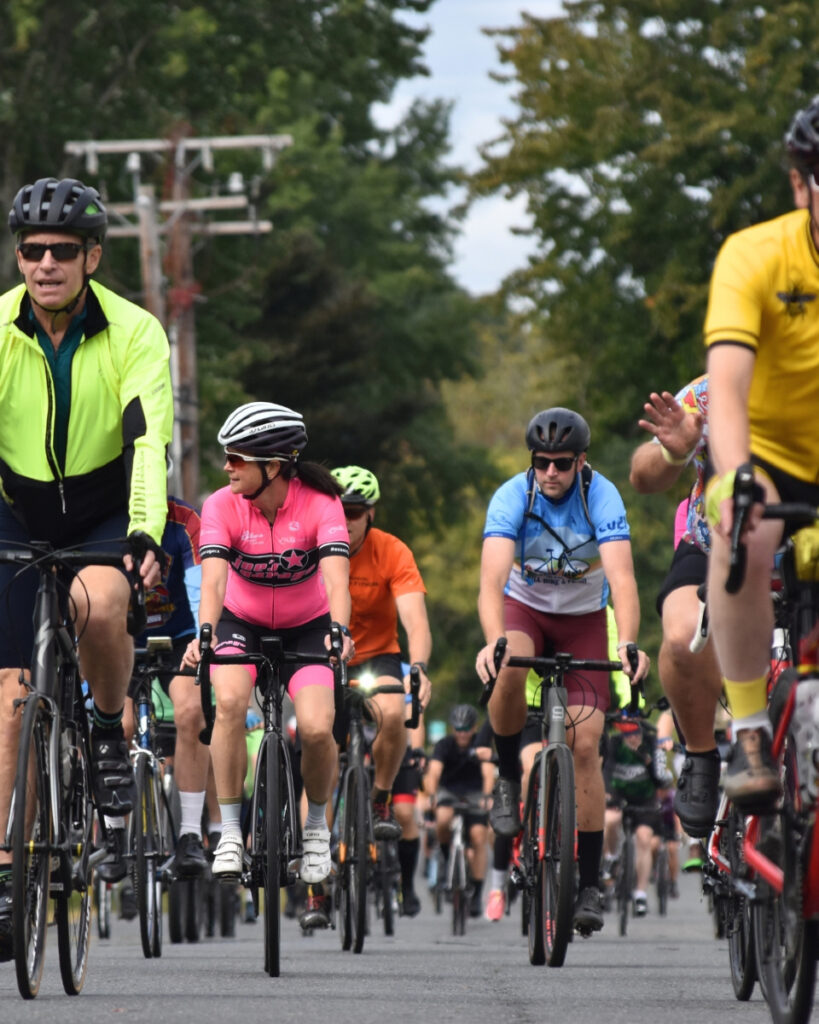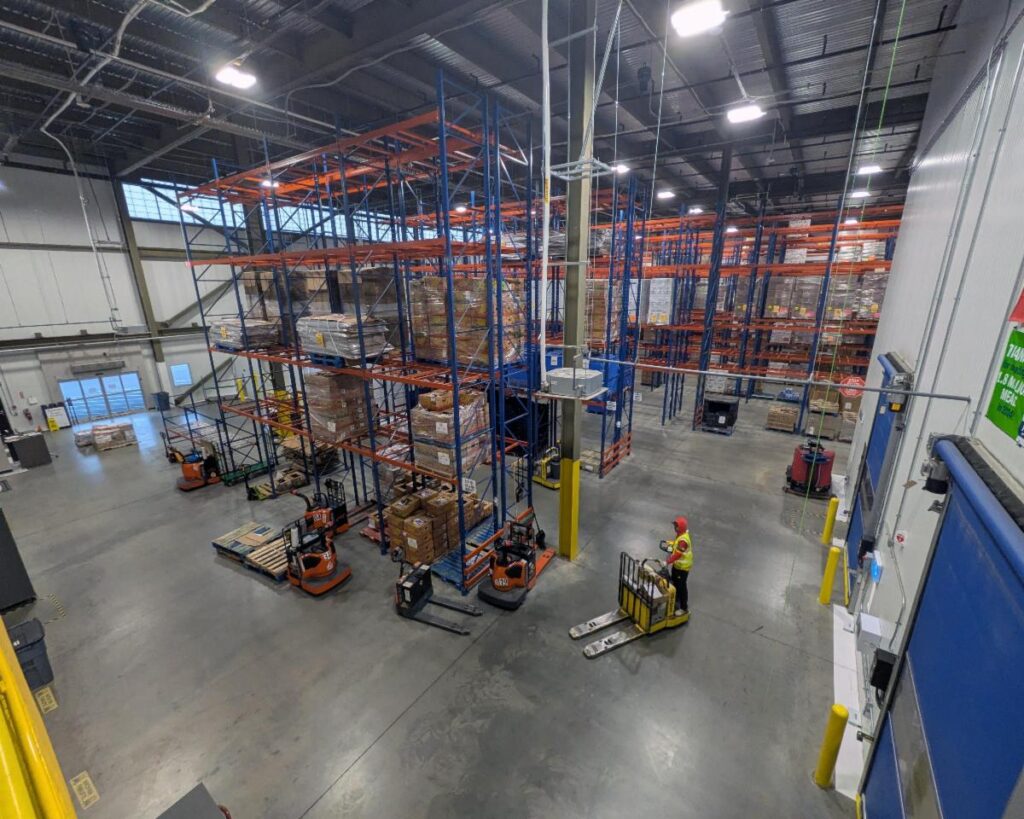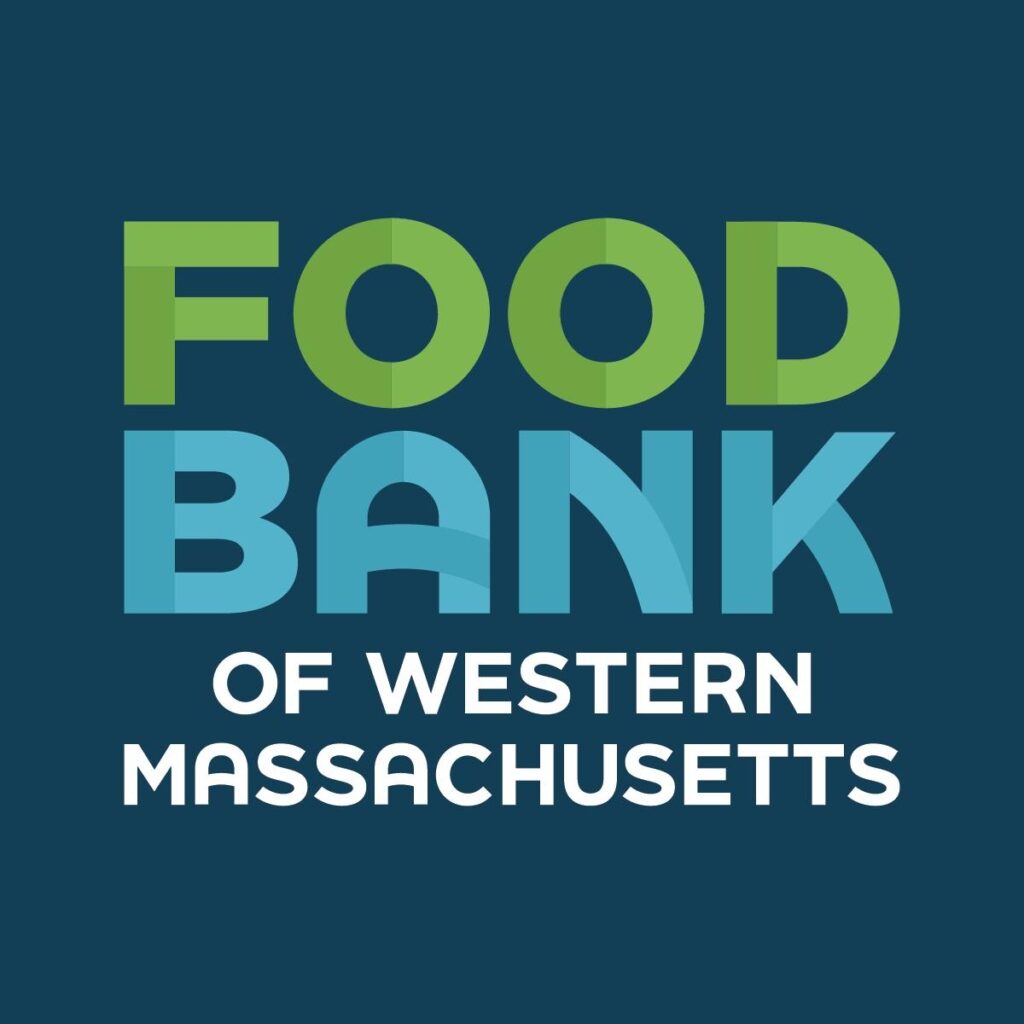Food insecurity in Western Massachusetts is on the rise. In 2024, statewide, more than one in three residents didn’t have enough food to eat or were unsure where their next meal would come from. In Hampshire, Franklin, Berkshire, and Hampden Counties, food insecurity levels all increased past the 50% mark. Driving forces for these jumps include ongoing inflation and the end of COVID-era food assistance programs, but these numbers do not factor in the most recent major changes to food assistance programs at the federal level. No matter how you cut it, these statistics represent real people struggling at staggering rates.

The Food Bank of Western Massachusetts is a stabilizing force in our region, tackling obstacles of distribution and accessibility to support over 123,000 people across Western Mass every month.
The work of the Food Bank consists of more than simply the logistics of sourcing, storing, and distributing food to their network of 199 partners within our area. They advocate for change at the state level, provide a platform for the voices of folks impacted by food insecurity, and actively offer nutritional education and access to the resources folks need to achieve food security. In their ideal world the Food Bank would be unnecessary, but as long as the need persists they will continue to shoulder this crucial piece of work for our community.
The origins of The Food Bank of Western Massachusetts can be traced to the early 1980s, when local community members gathered in a humble parking lot to distribute surplus food.

The Food Bank was officially incorporated in 1982, and within a year they had started their Brown Bag program; an ongoing once-a-month bag of groceries intended to help qualifying folks aged 55 and up to meet dietary standards. From ‘86-’87 they started, finished, and opened their first distribution facility in Hatfield. By the early 90s, they had started growing their own food – and then bought the farm. By the late 90s, their work helped establish the Massachusetts Emergency Food Assistance Program (MEFAP).

The 2000s were a time of change, both in community needs and the Food Bank’s approach. Expanding to help address the root causes of food insecurity became a part of the mission, and with the recession of 2008 came a huge influx of need, doubling food assistance applications.
2010 saw the first “March for the Food Bank” from Northampton to Greenfield, a wildly successful and ongoing annual event started by “Monte” Belmonte of New England Public Media. What started with Monte pushing a shopping cart around Northampton looking for support is now a 43-mile fundraising adventure.
2025 will mark the 16th year that Monte and his crew of dedicated do-gooders take their long walk from Springfield to Greenfield over the course of two days. Often wearing over-the-top costumes and surrounded by residents, business owners, and even some of our elected officials, this event has become a cornerstone in the regional fight against hunger.

Northampton-based Congressman Jim McGovern, U.S. Representative for the 2nd District of Massachusetts, has walked side by side with Monte and the Food Bank since 2013. All told, in 2024, the march raised over $638,000. This is an incredible victory for food security, highlighting just how impactful local initiatives can be.

This year, the March has expanded to include a Berkshire Mini-March for the Food Bank in Pittsfield. This 3-mile tour will hit some key food pantries and help raise awareness of initiatives in Berkshire County such as the Thanksgiving Angels packages given to local families.
The mini-march on Saturday November 22nd is rapidly approaching. It runs from 9:30am – 12pm and then finishes with an after party till 2pm. If you’d like to get in on the action, there’s still time to register by following this link here!
Or, if you’re feeling really brave, you can still sign up for the full march on Monday and Tuesday, November 24 and 25. This year’s 43-mile march has a fundraising goal of $650,000. If you’re thinking you’d like to contribute, but perhaps you’re not up to two consecutive 20-plus-mile-hikes, you could always donate to support someone willing to put in the shoe leather. As it happens, The Old Creamery Co-op is sending our own General Manager, Lloyd Miller, out on the road to walk the walk. If you’d like to back him up and show our community’s support for this incredibly generous organization, you can donate to the Food Bank of Western Massachusetts in his name by following this link.
In between all this fundraising and food distribution, the success of the Food Bank’s established infrastructure has enabled them to springboard their Mobile Food Bank distribution and multiple other fundraising events, such as “Will Bike 4 Food.” In 2020, just as COVID hit the region, the Food Bank had just finalized its purchase of a new property in Chicopee.

Even through the challenges of a global pandemic, the good people at the Food Bank continued their mission to keep their neighbors fed, while simultaneously building out that property into the brand new facility from which they operate today.

This facility is state of the art, provides essential meeting and office space, and includes a full demonstration kitchen. With enough vertical storage to deal with the high rate of supply turnover, they often fill and empty their 32,000 square foot storage facility every day and a half.
Food pantries and shelters, can apply to become members of their network, giving them the ability to order what they need from what’s available in the warehouse at that time. Staff onsite then go pick and pack those orders, wrapping them up on pallets. Member organizations can come pick up at the warehouse, or a small fleet of refrigerated trucks also deliver as needed across our wide-ranging region.


The food itself is provided through various programs, purchases, and donations. Around 20% of the food is sourced from The Emergency Food Assistance Program (TEFAP/USDA), a federal food assistance program. Around 30% of the food is provided by the Massachusetts Emergency Food Assistance Program (MEFAP), our state program.

The rest is brought in from local farms, including the Food Bank’s own farms in Hadley, other businesses, and community organizations. Produce sourced from local farms also has the benefit of a longer shelf life after arrival, primarily because it doesn’t need to be shipped or stored in the process.

The Food Bank of Western Massachusetts today boasts a total staff of around eighty employees, all dedicated in one way or another to the mission. Beyond simply procuring and distributing healthy foods for our neighbors, labor resources in the organization also prioritize education and empowerment through a wide offering of programs and events.
Time and money are spent in the effort to shift governmental policy to ease access to food, but also to provide the tools to utilize these resources. Some programs offer basic nutritional guidance, while others offer lessons in the sustainable cultivation of personal and communal farms. They film videos that show how to cook the fresh produce distributed to folks, which not everyone may have experience with.
And while this dedicated staff is a vital piece of the operation, the contributions of time made by the volunteers who step up to the plate for the Food Bank are equally invaluable. For those who wish to offer their time, there are many opportunities available. Folks can come help sort food at the facility in Chicopee, or they can pitch in seasonally on one of the farms that the Food Bank now operates. From bike rides to food drives, there are so many ways to offer time and elbow grease in support of the Food Bank’s work.

The Food Bank of Western Massachusetts believes that achieving food security is an obtainable goal with rippling impacts. We all need to eat. A bag of groceries given freely can make the difference that allows other essential bills to be paid on time. An understanding of nutrition now can help prevent life threatening diseases later, each piece affecting the next. Food security in our communities today tangibly supports a better future for tomorrow.
For more information on how you can pitch in, visit the volunteer page at www.foodbankwma.org.

Food Bank of Western Massachusetts
25 Carew Street
Chicopee, MA 01020
Hours:
Monday through Friday, 9 a.m. to 4 p.m.
Food Bank of Western Massachusetts
foodbankwma.org
Main Desk: 413-247-9738
Food Assistance Navigation:
413-206-6276
SNAP Assistance: 413-992-6204
Brown Bag & Mobile Food Bank:
413-419-0079
